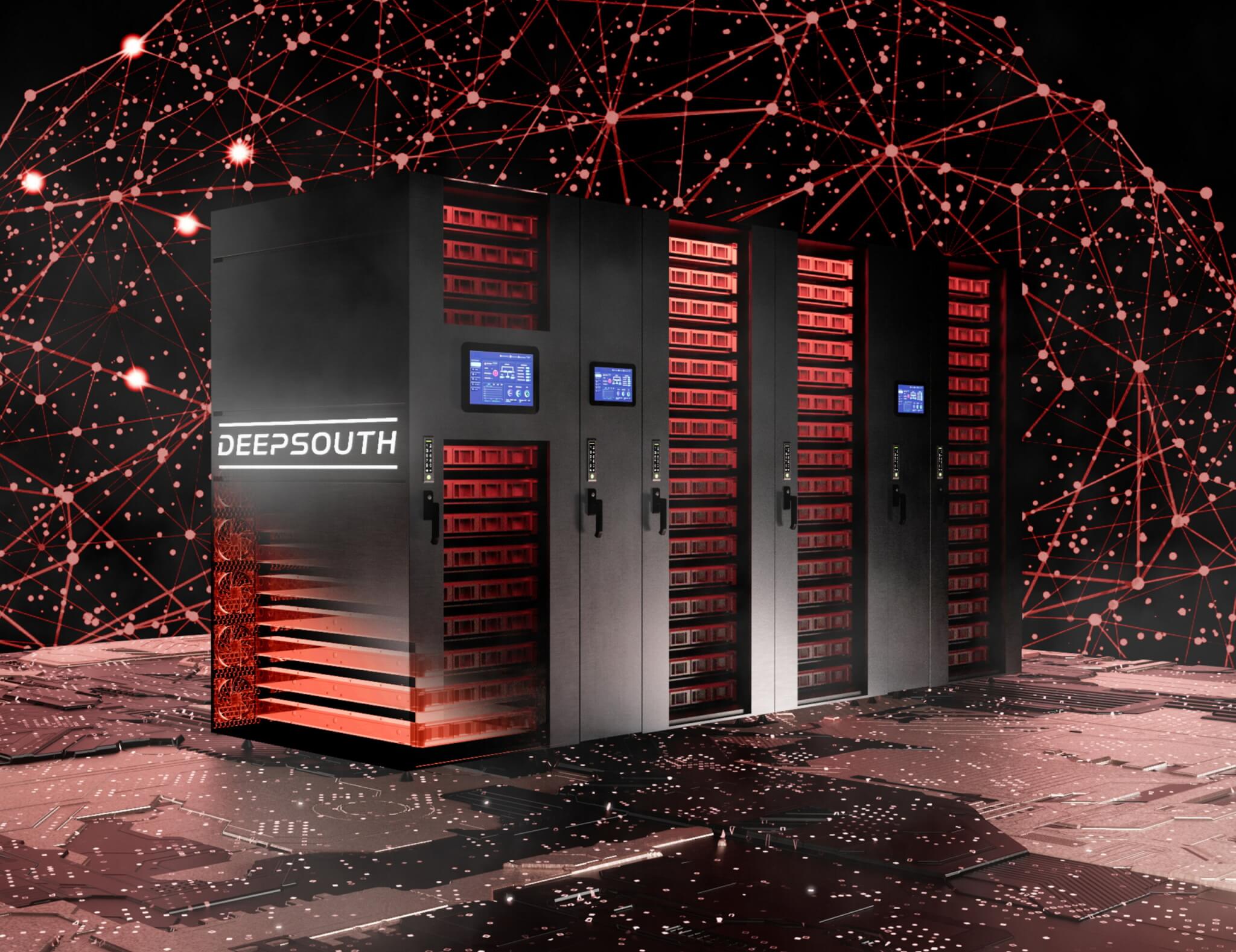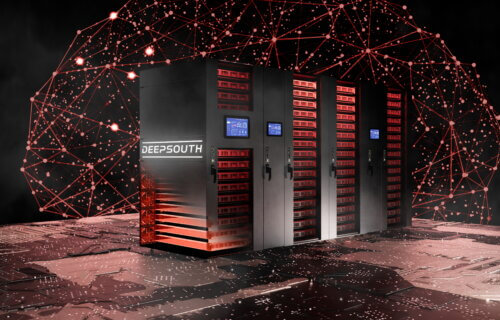PENRITH, Australia — DeepSouth, the world’s first supercomputer designed to simulate the entire human brain, is now just months away from activation. Developed by researchers at the International Centre for Neuromorphic Systems (ICNS) at Western Sydney University, DeepSouth boasts the capability to mimic brain networks on the scale of an actual human mind.
DeepSouth employs a neuromorphic system, which replicates human biological processes. By utilizing hardware, it efficiently simulates large networks of spiking neurons, achieving an impressive 228 trillion synaptic operations per second. This rate is comparable to what scientists believe the human brain could achieve. The researchers at ICNS are optimistic that by replicating brain functions, they can gain a deeper understanding of its workings and subsequently design more effective AI systems.
Professor André van Schaik, the Director of ICNS, highlights that DeepSouth is distinct from other supercomputers due to its unique design. Specifically engineered to function like networks of neurons (brain cells), it requires less power and achieves greater efficiencies. This approach stands in stark contrast to traditional supercomputers, which, optimized for conventional computing tasks, consume a considerable amount of power.
“Progress in our understanding of how brains compute using neurons is hampered by our inability to simulate brain like networks at scale. Simulating spiking neural networks on standard computers using Graphics Processing Units (GPUs) and multicore Central Processing Units (CPUs) is just too slow and power intensive. Our system will change that,” Prof. van Schaik says in a media release.
“This platform will progress our understanding of the brain and develop brain-scale computing applications in diverse fields including sensing, biomedical, robotics, space, and large-scale AI applications.”

Prof. van Schaik believes that the DeepSouth system will pave the way for advancements in smart devices, such as mobile phones and sensors used in manufacturing and agriculture. Moreover, it is expected to contribute to the development of AI applications that are both less power-intensive and more intelligent. Additionally, the system will enhance our understanding of the workings of the human brain, both in healthy and diseased states.
The ICNS team at Western Sydney University has been instrumental in the development of this groundbreaking project, working in collaboration with experts across the neuromorphic field. This includes partnerships with researchers from the University of Sydney, the University of Melbourne, and the University of Aachen in Germany.
The name DeepSouth was thoughtfully chosen, serving as a tribute to IBM’s TrueNorth system, which spearheaded the effort to create machines that simulate large networks of spiking neurons. It also honors Deep Blue, the first computer to win a world chess championship. Additionally, the name reflects its geographic location, “down under” in Australia.
DeepSouth is scheduled to become operational by April 2024.
5 Key Benefits of DeepSouth, According to Researchers:
Artificial Intelligence: By mimicking the brain, we will be able to create more efficient ways of undertaking AI processes than our current models.
Super-fast, large scale parallel processing using far less power: Our brains are able to process the equivalent of an exaflop — a billion-billion (1 followed by 18 zeros) mathematical operations per second — with just 20 watts of power. Using neuromorphic engineering that simulates the way our brain works, DeepSouth can process massive amounts of data quickly, using much less power, while being much smaller than other supercomputers.
Scalability: This system’s design allows easy expansion by adding more hardware for larger systems or downsizing for portable or cost-effective applications.
Reconfigurable Design: Leveraging Field Programmable Gate Arrays (FPGA) allows hardware reprogramming, enabling the addition of new neuron models, connectivity schemes, and learning rules. DeepSouth’s remote accessibility through a Python-based front end simplifies usage without intricate hardware knowledge.
Commercial Availability: DeepSouth relies on off-the-shelf hardware, ensuring continual enhancements and easy replication at global data centers. This approach overcomes challenges associated with custom-designed hardware, which is time-consuming and costly.
South West News Service writer Dean Murray contributed to this report.




